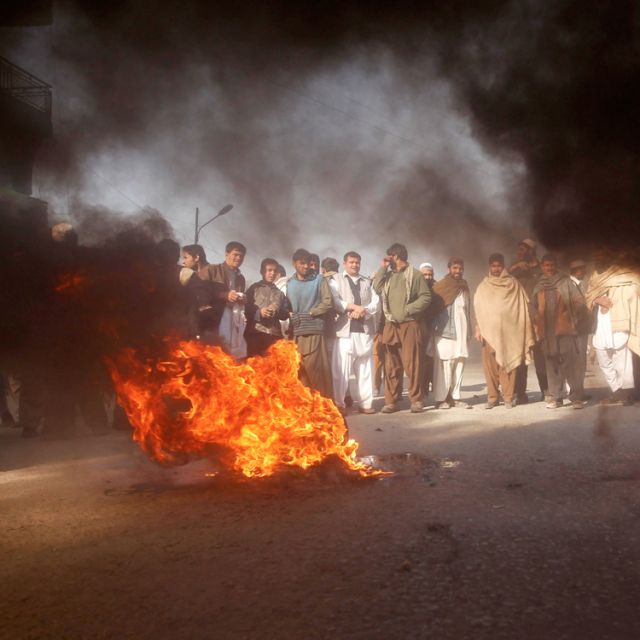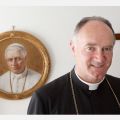Canada joined the war in Afghanistan in 2002 for just reasons but now it’s time to bring the troops home. So Prime Minister Stephen Harper made the right call in finally ending Canada’s physical engagement in that war-weary nation.
Actually, it was overdue. Canadian troops still in Afghanistan on training assignments, about 900 of them, will all be home by March 2014, despite neither the surrender nor defeat of the Taliban.
Compared to most other larger, richer NATO allies, Canada contributed more than its fair share in lives and resources to the cause of the beleaguered Afghans. But exiting a war is more difficult than entering one.
Should the Canadian-owned racehorse I’ll Have Another pull off one of the rarest feats in sports next weekend and win the Triple Crown, I am sure it will evoke a memory of Holy Cross Elementary School in east-end Toronto and an affable nun who used to be the principal.
I’ll Have Another is the plucky thoroughbred owned by Windsor, Ont., native J. Paul Reddam and ridden by an underdog jockey named Mario Gutierrez, who earned his spurs at the racing outpost known as Hastings Park in Vancouver.
ROME - Pentecost is a feast of unity, as the gift of the Holy Spirit makes possible the unity that the Lord Jesus desires for His Church. To preserve the unity of the Church is one of the first duties of the pastor. The flock is to be brought into the one sheepfold. Yet that remains a very difficult and delicate task. Two current examples, much discussed in Rome these days, point to different approaches.
Consider first the Anglicans. For the better part of 40 years there have been significant numbers of Anglicans looking Romeward, particularly after the unilateral decision in the Anglican Communion in the 1970s to ordain women, something never done by either the Catholic or Orthodox Churches. Many thought that such a unilateral rupture of common sacramental practice meant a definitive abandonment of the ecumenical path by the Anglican Communion, and therefore some measure should be adopted by Rome to make it easier for Anglicans to become Catholic while preserving something of their ecclesial communities and liturgical heritage. The Holy See took rather a different view. While provision was made for individual Anglican clergy, and individual Anglican lay people could always become Catholic in the normal fashion, there was no provision for groups to enter full communion together.
Two questions about political progressives have always stumped me: What do they think we are progressing toward, and how will they know when we get there?
Three months of student protests in the streets of Montreal fail to provide full answers, but they are prime evidence of an outcome. Nearly 50 years of progressive politics have produced a generation whose very vanity is a form of violence as bad as, perhaps worse than, smashed store windows, nightly street riots and quasi-terrorist attacks on the public transit system.
Canada’s bishops have called on Catholics to become courageous defenders of freedom of conscience and religion. They call these rights inalienable, universal and precious, and urge Canadians to profess and safeguard them with the steadfast fidelity of Thomas More.
Their message needs to be heard and heeded.
In springtime, wrote Alfred Tennyson, “…a young man’s thoughts lightly turn to love.” But this spring the thoughts of young Quebecois have turned not to love but to revolution. And for what cause? Sit down before I tell you — tuition fees.
Never mind that tuition fees are already lower in Quebec than anywhere else in North America. Never mind that if Premier Jean Charest gets his way and bumps them up a bit, they will still remain the lowest in North America. Such considerations have not deterred the wannabe Trotskyites, the occupiers and their anarchist friends, who at night have taken over some downtown Montreal blocks — smashing windows, upturning cars and hurling rocks at police. On May 1 the police made more than 95 arrests. On May 4 the protesters tried for them a “new” tactic that actually comes from the Canadian Doukhabor playbook back in the 1960s — nudity.
My seven-year-old recently made his First Communion. He is one of two children to take this life-changing spiritual step in our rural Nova Scotia parish. That’s right, one of only two.
I’m sure there are other children in our countryside community who should have joined them, but for many reasons those children did not prepare for the sacrament. Most don’t even attend Mass, even though their parents did so as children.
BETHLEHEM - Ten years ago, for 40 days in April and May 2002, the Church of the Nativity was occupied by armed gunmen. The Israeli Defense Forces (IDF) were outside, the Palestinian armed forces inside, and the Christian world fervently tried not to take offence.
It was a shameful episode, both in its substance and in the reaction to it, a sad signal at the beginning of this century that the persecution of Christians would proceed apace.
Speaking recently about priesthood, Pope Benedict XVI said a priest must not ask what he can gain for himself but ask what he can give back to Christ and others. That sentiment, if not those very words, will be evident this week as St. Peter’s Seminary celebrates its 100th anniversary.
It has been a century of forming men to follow faithfully and selflessly in the footsteps of the first disciples. By their work in parishes and missions across Canada and throughout the world, graduates of St. Peter’s in London, Ont., have helped write the history of the modern Church in Canada.
They say you can learn more about a person on the golf course than you can in a business meeting or a social setting. And I believe it.
Love it or hate it, golf has this magical quality of exposing fabrics of your personality very quickly to strangers. Sometimes these traits can be pleasant, or quirky, or annoying, or worse.
If you’re a golfer and have been paired with a stranger on the first tee, you know what I am talking about. From that first tee ball to the first green, before the first putt falls into the hole, often you can tell if it will be a long day or not. (Believe it or not, I have played golf with priests — an occupation not altogether unfamiliar with the game — who made for a long day and I knew it quickly! Most priests, however, are a delight to play with.)
New statutes for Caritas may have far-reaching consequences for new evangelization
By Fr. Raymond J. de SouzaROME - Much of the recent news from Rome deals with matters that, though important, will have minimal effect on the life of the Church as a whole. The negotiations with the Society of St. Pius X, the admission of former Anglicans to full communion, even the doctrinal assessment of one of the leadership associations of American women religious — all of these items are at the margins, rather than the centre, of the universal Church. The Society of St. Pius X has a significant presence in only a few countries, the former Anglicans in even fewer and the congregational leadership subject to doctrinal assessment represents an aging and rapidly diminishing component of American religious life.
Yet one recent piece of news is potentially of great significance for the daily life of the Church throughout the world. The Holy See announced last week reformed statutes for Caritas Internationalis, the global umbrella group of various Catholic development agencies.











